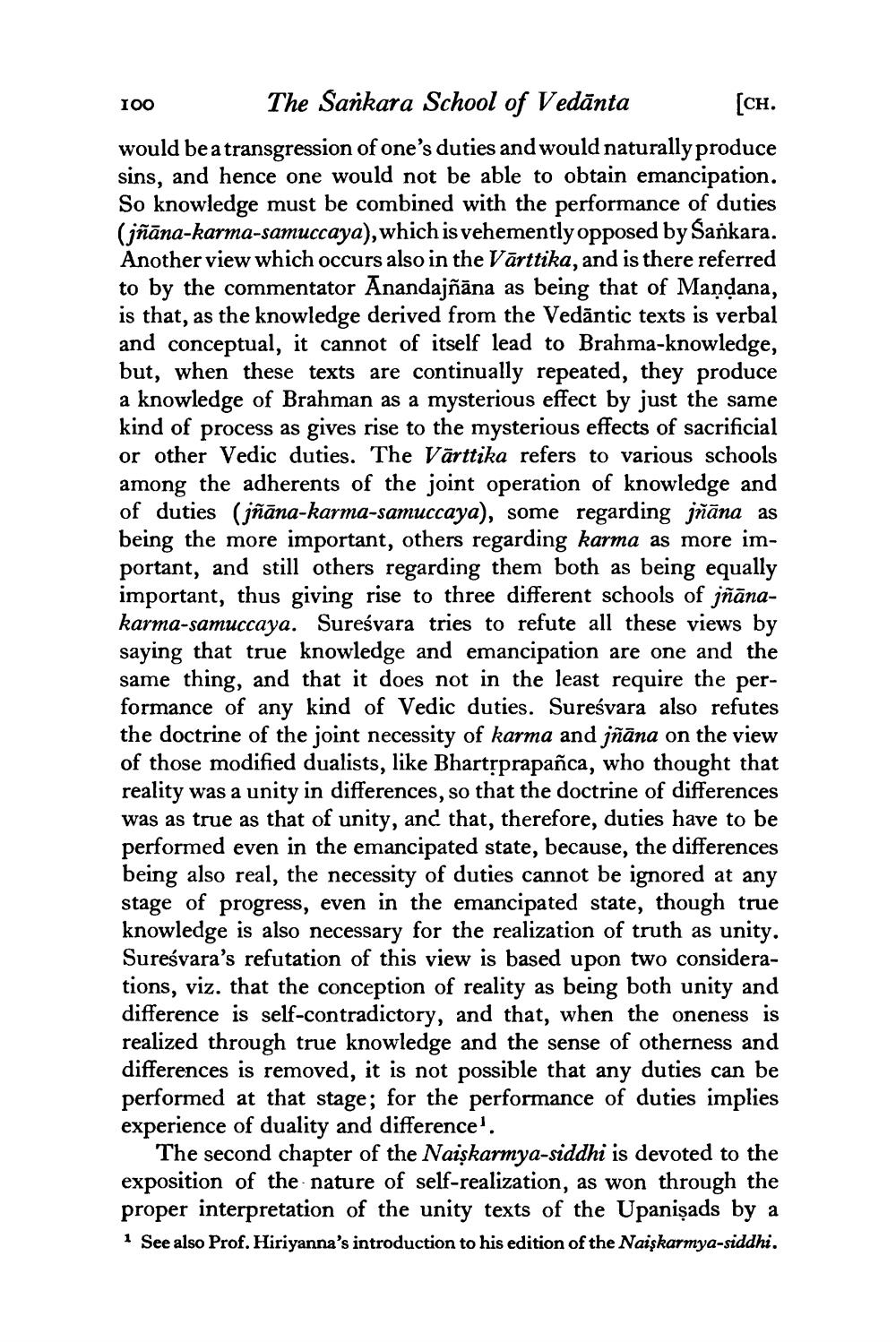________________
100 The Sankara School of Vedānta
[CH. would be a transgression of one's duties and would naturally produce sins, and hence one would not be able to obtain emancipation. So knowledge must be combined with the performance of duties (jñāna-karma-samuccaya), which is vehemently opposed by Sankara. Another view which occurs also in the Vārttika, and is there referred to by the commentator Anandajñāna as being that of Mandana, is that, as the knowledge derived from the Vedāntic texts is verbal and conceptual, it cannot of itself lead to Brahma-knowledge, but, when these texts are continually repeated, they produce a knowledge of Brahman as a mysterious effect by just the same kind of process as gives rise to the mysterious effects of sacrificial or other Vedic duties. The Vārttika refers to various schools among the adherents of the joint operation of knowledge and of duties (jñāna-karma-samuccaya), some regarding jñāna as being the more important, others regarding karma as more important, and still others regarding them both as being equally important, thus giving rise to three different schools of jñānakarma-samuccaya. Sureśvara tries to refute all these views by saying that true knowledge and emancipation are one and the same thing, and that it does not in the least require the performance of any kind of Vedic duties. Sureśvara also refutes the doctrine of the joint necessity of karma and jñāna on the view of those modified dualists, like Bhartsprapañca, who thought that reality was a unity in differences, so that the doctrine of differences was as true as that of unity, and that, therefore, duties have to be performed even in the emancipated state, because, the differences being also real, the necessity of duties cannot be ignored at any stage of progress, even in the emancipated state, though true knowledge is also necessary for the realization of truth as unity. Sureśvara's refutation of this view is based upon two considerations, viz. that the conception of reality as being both unity and difference is self-contradictory, and that, when the oneness is realized through true knowledge and the sense of otherness and differences is removed, it is not possible that any duties can be performed at that stage; for the performance of duties implies experience of duality and difference'.
The second chapter of the Naiskarmya-siddhi is devoted to the exposition of the nature of self-realization, as won through the proper interpretation of the unity texts of the Upanişads by a 1 See also Prof. Hiriyanna's introduction to his edition of the Naişkarmya-siddhi.




